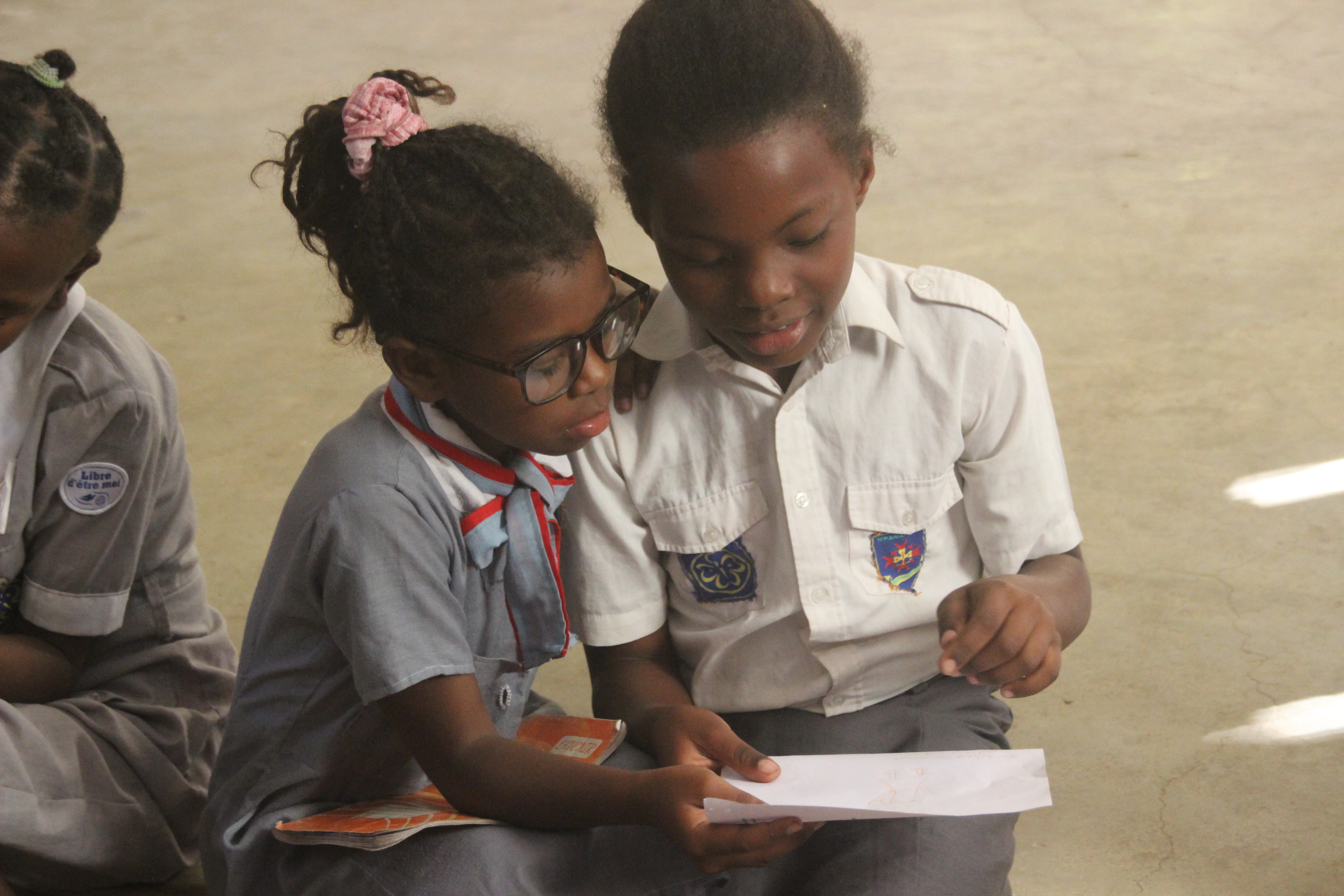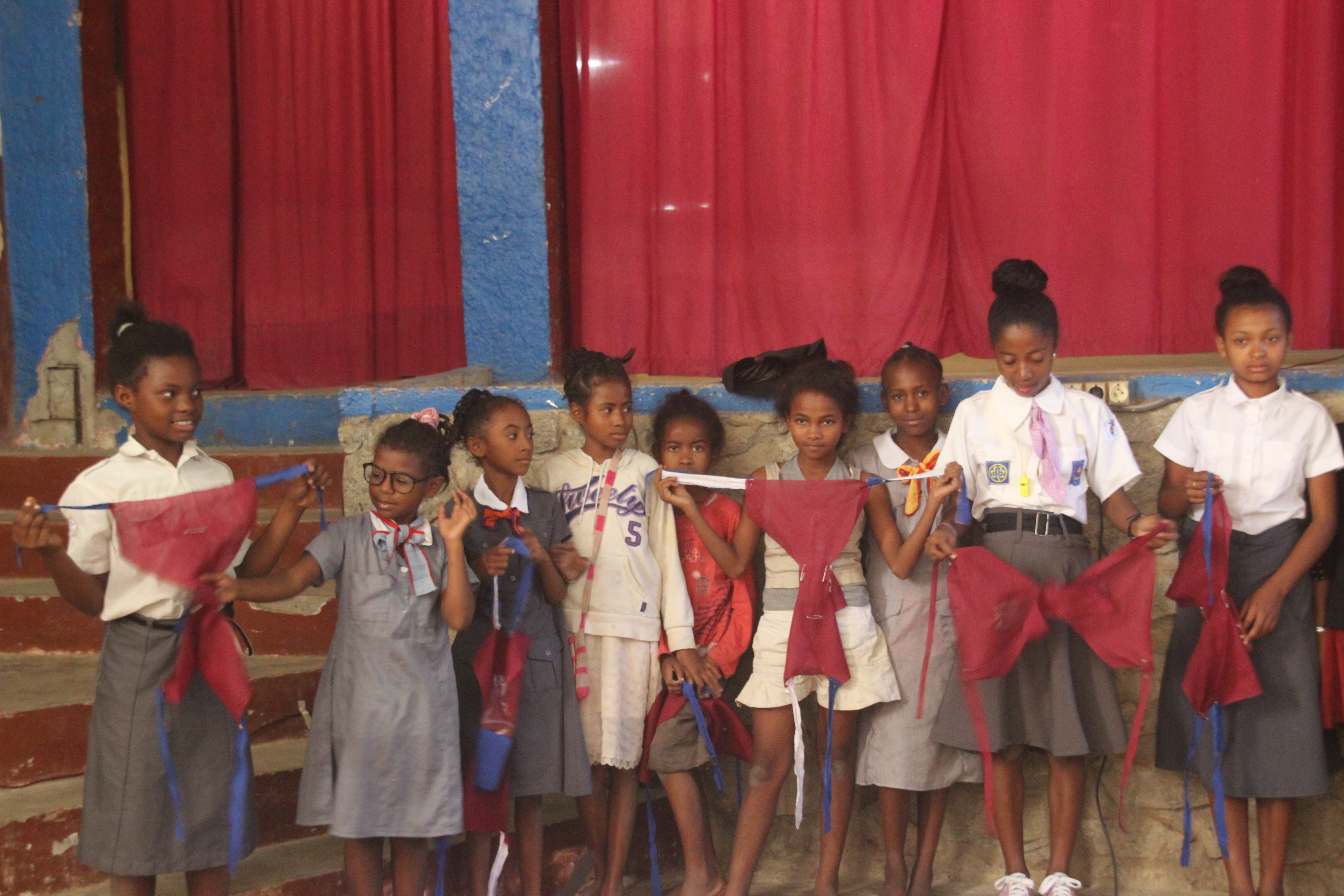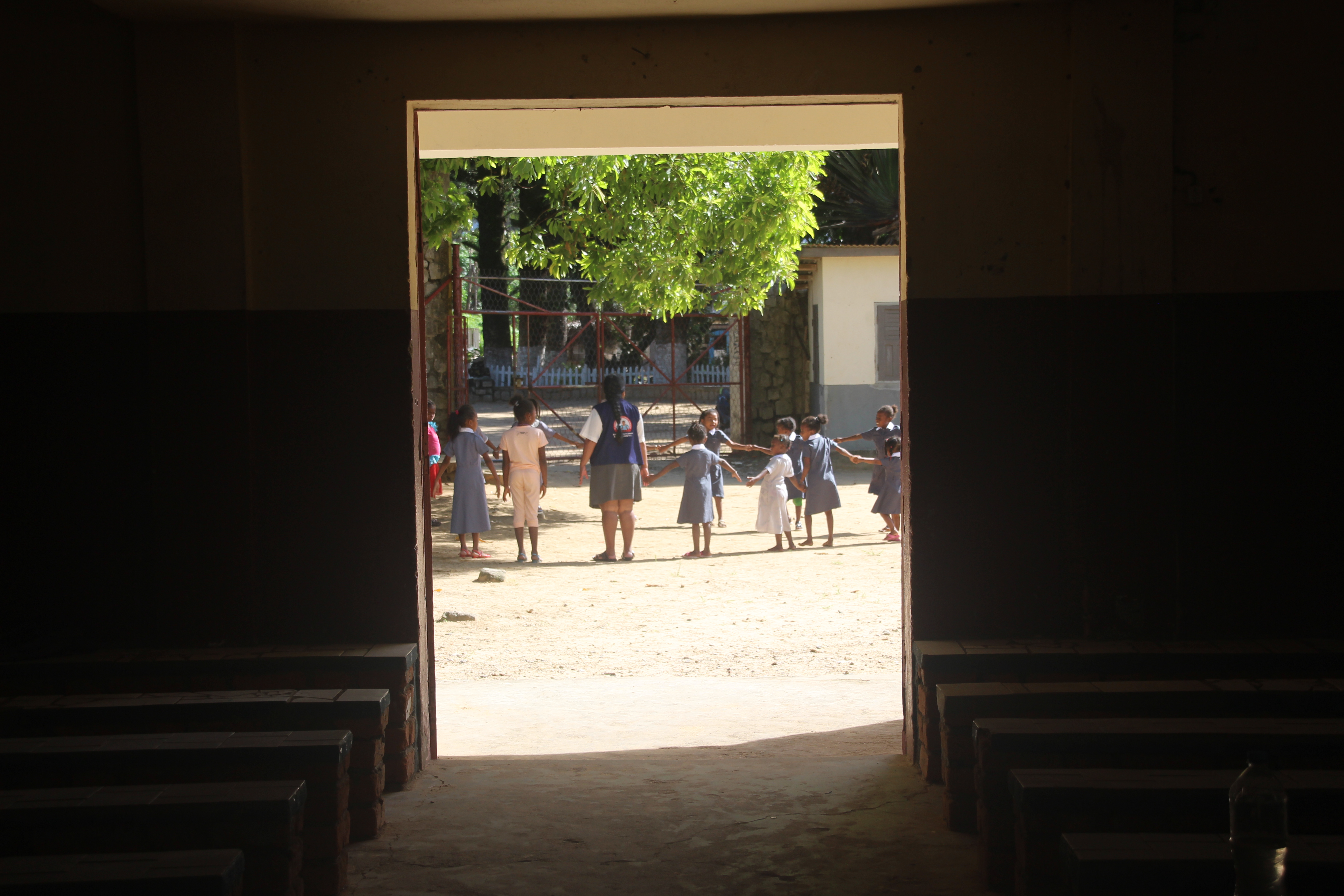Photos by SEED Madagascar
Imagine you start bleeding from somewhere you have never before. How do you feel? Scared? Confused? You go to someone you trust to find out what is happening, perhaps a family member or a friend, but they don’t explain everything to you. They just tell you it will happen once a month and last a few days, then give you something to soak up the blood.
This is the reality for many young women when they get their period for the first time. In the southeast of Madagascar, schools begin teaching students about menstruation around the age of 13, which is often too late as girls can begin menstruating as early as eight years old. Unfortunately, existing stigmas and taboos surrounding menstruation can cause feelings of shame or embarrassment, therefore, conversations with close friends or relatives are often avoided or limited to the most necessary information. Delayed or limited information can result in many years of poor menstrual hygiene practice and can exacerbate taboos surrounding, what is essentially, a healthy biological process for women.

Menstrual Hygiene Day, celebrated on the 28th May, aims to combat stigmas relating to menstruation, empowering women to take charge of their health through positive menstrual hygiene practices. Mpanazava Eto Madagasikara (MEM) is one of three Girl Guide associations in Madagascar, involving over 22,000 young women aged between 6 and 25, encompassing both students and out-of-school youth. MEM’s unique position enables them to share essential knowledge and empower its members to drive change in the community.
This Menstrual Hygiene Day, SEED Madagascar partnered with the MEM unit in Fort Dauphin to run a menstrual hygiene workshop for their members. During the three-hour workshop, SEED staff and over 50 young women aged from 10 to 23 discussed biological changes during puberty and the female reproductive system, which offered new insights for many members about the biological details of pregnancy. Putting aside any initial embarrassments, the participants expressed curiosity and passion to learn more about the different stages of the menstrual cycle and related topics. The session also worked towards deconstructing local myths surrounding the experiences of menstruation, with some members offering various beliefs about period-related bodily pain and age of first bleed. The young women were taught that every women experiences her period differently and encouraged open conversations surrounding menstruation in a space they feel safe to do so, such as within the weekly meetings of the Girl Guides.

During this session, the girls learnt about the various, yet limited, types of sanitary material that is available in Fort Dauphin. Many of the girls identified reusable pads and square cloths as the type of materials they most commonly used, with tampons and single-use proving unaffordable to most. Project staff discussed the ways to dispose of single-use sanitary materials, as well as how to clean, dry and care for both reusable pads and the square cloths. The workshop then featured a tutorial which taught the girls how to make a reusable pad using locally-available and affordable materials. Due to a potential lack of access to underwear, especially in rural areas, the girls were also instructed how to make a reusable ‘Padini’, the local name for bikini underwear with a sanitary pad sown in. This information will equip the girls with the ability to manage their period in a sustainable, hygienic and affordable way.

Throughout the workshop, the girls were encouraged to share the information they had received with other members of their community, aiming to increase the normalisation of menstruation-related conversations and deconstruct local stigmas. Despite some embarrassment discussing menstruation, especially in the presence of their male colleagues at school or in the community, project staff reassured the young women that menstruation is a normal process and encouraged a supportive mentality towards other girls struggling with the similar issues.
This workshop helped to improve girls’ understanding of menstruation, whilst also providing a key insight to the issues and challenges young women in Fort Dauphin often face when accessing accurate and helpful information. This is the first step in addressing the lack of information available to young women about menstruation and menstrual hygiene practices and we look forward to working more closely with the Fort Dauphin troupe of Mpanazava Eto Madagasikara to engage and inform more young women.
To learn more about SEED Madagascar’s work, visit their website, Twitter, Facebook and Instagram.
To learn more about Mpanazava Eto Madagasikara, visit their Facebook page.